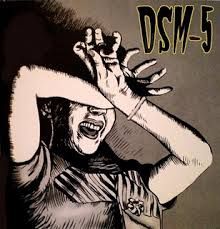Grief
Grief and the DSM 5
Grief counselors ask us to acknowledge the wisdom of the human heart
Posted May 18, 2013
Franklin Roosevelt wore a black arm band for months after his mother’s death. Queen Victoria dressed in black after the loss of her beloved Prince Albert. Abraham Lincoln mourned the loss of his young son, Eddie, and C.S. Lewis wrote eloquently of his response to his wife’s death in A Grief Observed. For thousands of years, world cultures have acknowledged the loss of a loved one with elaborate mourning rituals. Yet today, these people would be considered mentally ill.

Recently, a group of grief counseling professionals in the International Work Group on Death, Dying and Bereavement protested the fact that the new DSM 5 includes grief for more than 2 weeks—even after the death of a loved one—as a symptom of Major Depressive Disorder. The DSM (Diagnostic and Statistical Manual of Mental Disorders), published by the American Psychiatric Association, is the definitive guide for clinicians and insurance companies in the diagnosis and treatment of mental illness.
Yet “grief is not a pathological condition,” these grief counselors maintain, “not an illness to be treated or cured,” but “a healthy response to a painful reality that one’s world is forever altered, and will never be the same. Absorbing this loss, and adapting to all the changes it unleashes, has its own unique course for every person, and will not be stilled or stopped by quick fixes or simple solutions.”
In our quick-fix culture, it is all too easy to seek a pill to banish troublesome symptoms, all too easy for pharmaceutical companies to seek profit from a substantial new market: the millions of unfortunate individuals who lose their loved ones each year.
Concerned that what has long been seen as a normal response to the loss of a loved one will now be pathologized and treated with antidepressants, these grief counselors ask us to acknowledge the wisdom of the human heart. “We grieve as deeply as we love,” they remind us. It is natural to love and be loved, natural to mourn the loss of someone we love. These feelings are not symptoms of mental illness but essential to what it means to be human.
****************
Diane Dreher is a best-selling author, personal coach, and professor at Santa Clara University. Her latest book is Your Personal Renaissance: 12 Steps to Finding Your Life’s True Calling.
Follow Diane on Twitter: Diane Dreher (@dianedreher) on Twitter
Like Diane on Facebook: Diane Dreher | Facebook


